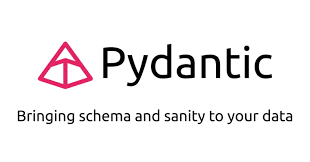Pydantic AI
The evaluation of agentic applications is most effective when integrated into the development process, rather than being an afterthought. For this to succeed, developers must be able to mock both internal and external dependencies of the agent being built. PydanticAI introduces a groundbreaking framework that supports dependency injection from the start, enabling developers to build agentic applications with an evaluation-driven approach. An architectural parallel can be drawn to the historic Krakow Cloth Hall, a structure refined over centuries through evaluation-driven enhancements. Similarly, PydanticAI allows developers to iteratively address challenges during development, ensuring optimal outcomes. Challenges in Developing GenAI Applications Developers of LLM-based applications face recurring challenges, which become significant during production deployment: To address non-determinism, developers must adopt evaluation-driven development, a method akin to test-driven development. This approach focuses on designing software with guardrails, real-time monitoring, and human oversight, accommodating systems that are only x% correct. The Promise of PydanticAI PydanticAI stands out as an agent framework that supports dependency injection, model-agnostic workflows, and evaluation-driven development. Its design is Pythonic and simplifies testing by allowing the injection of mock dependencies. For instance, in contrast to frameworks like Langchain, where dependency injection is cumbersome, PydanticAI streamlines this process, making the workflows more readable and efficient. Building an Evaluation-Driven Application with PydanticAI Example Use Case: Evaluating Mountain Data By employing tools like Wikipedia as a data source, the agent can fetch accurate mountain heights during production. For testing, developers can inject mocked responses, ensuring predictable outputs and faster development cycles. Advancing Agentic Applications with PydanticAI PydanticAI provides the building blocks for creating scalable, evaluation-driven GenAI applications. Its support for dependency injection, structured outputs, and model-agnostic workflows addresses core challenges, empowering developers to create robust and adaptive LLM-powered systems. This paradigm shift ensures that evaluation is seamlessly embedded into the development lifecycle, paving the way for more reliable and efficient agentic applications. Like Related Posts Salesforce OEM AppExchange Expanding its reach beyond CRM, Salesforce.com has launched a new service called AppExchange OEM Edition, aimed at non-CRM service providers. Read more The Salesforce Story In Marc Benioff’s own words How did salesforce.com grow from a start up in a rented apartment into the world’s Read more Salesforce Jigsaw Salesforce.com, a prominent figure in cloud computing, has finalized a deal to acquire Jigsaw, a wiki-style business contact database, for Read more Service Cloud with AI-Driven Intelligence Salesforce Enhances Service Cloud with AI-Driven Intelligence Engine Data science and analytics are rapidly becoming standard features in enterprise applications, Read more






